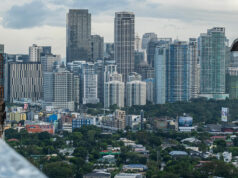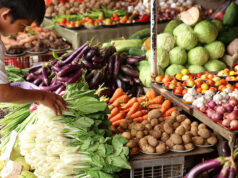Philippines signs agreement with Indonesia to train coffee farmers
THE Philippines and Indonesia have signed a partnership to upgrade the skills of Filipino coffee farmers in order to boost their productivity, industry officials said.
“This training aims to contribute to the government’s program in improving productivity, product quality, and profitability of the country’s coffee farms through a competitive and sustainable value chain from farming to manufacturing,” Philippine Coffee Board, Inc. (PCBI) President Pacita U. Juan said in a statement.
The Coffee Farmers’ Training Grant is a joint project of the Department of Agriculture (DA), the PCBI, PT Mayora Indah Tbk, and the Embassy of Indonesia in the Philippines. Under the partnership, training will be conducted in both countries for Filipino coffee farmers from Benguet, Quezon, Bukidnon, and Sultan Kudarat provinces, as well as the regions of Ilocos, Negros, and Davao.
“Smallholder coffee farmers in these provinces already plant Arabica, Robusta, Liberica, and Excelsa coffee beans, but still have the potential of further generating income and supporting livelihoods with sustained quality production,” Ms. Juan said.
“Through the educational grant, we hope to help reboot the country’s coffee industry by equipping our coffee farmers with the necessary knowledge, skills, and mindset to derive the most economic benefit from their produce,” she added.
Ten coffee farmers were selected for the training grant, owning at least a hectare and producing at least one metric ton (MT) of coffee annually.
“One of the purposes of this launch is to increase the production of Philippine coffee beans to contribute to the development of the coffee industry,” Indonesian Ambassador to the Philippines Sinyo Harry Sarundajang said.
“I am optimistic that this program would be a good start and will also open other new opportunities between our nations to get even closer and gain mutual benefit,” he added.
According to the Philippine Statistics Authority (PSA), coffee production fell 0.4% to 5,790 MT in the third quarter. The top producer was Davao region, which accounted for 34.6% of total production, followed by South Cotabato, Cotabato City, Cotabato Province, Sultan Kudarat, Sarangani and General Santos City (SOCCSKSARGEN) with 25.1%, and Caraga with 14.2%.
The top variety produced was Robusta, which accounted for 65.7%, followed by Arabica (26.8%) and Excelsa (6.6%). Production of Liberica accounted for 0.9%. — Vincent Mariel P. Galang



